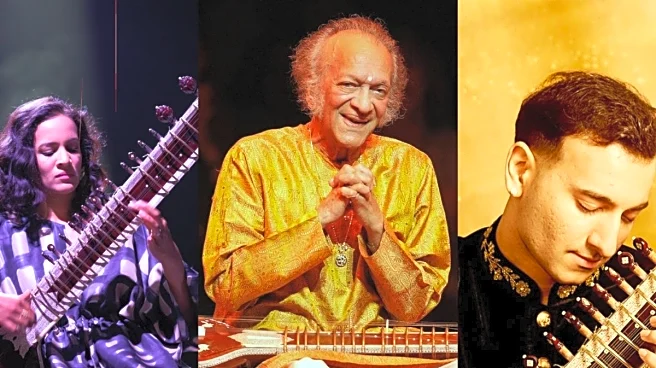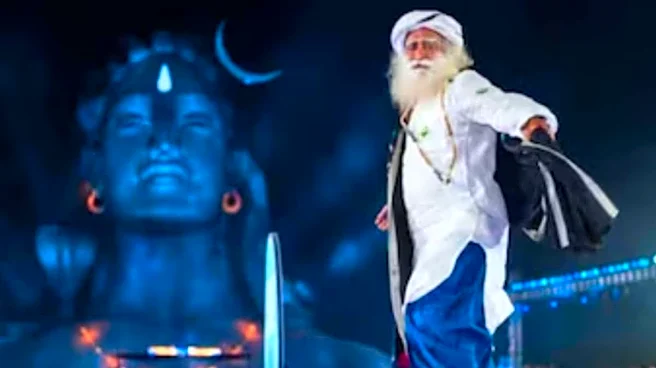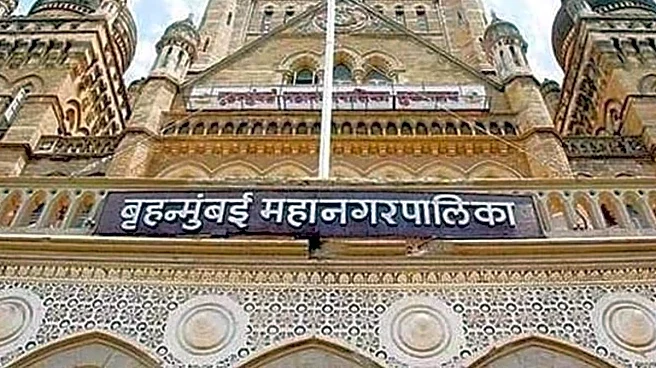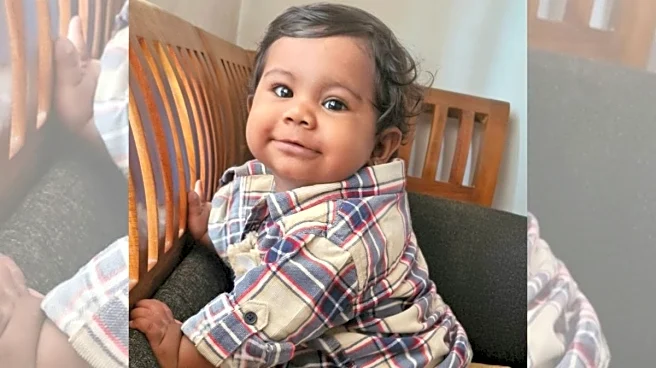What is the story about?
Former Bangladesh Prime Minister Sheikh Hasina was convicted for "crimes against humanity" by the country's International Crimes Tribunal (ICT) on Monday, November 17, 2025.
"Accused Sheikh Hasina be found guilty on three counts of charges of incitement, order to kill and failing to take punitive action against the perpetrators," the tribunal said.
"The court awards Hasina a sentence of imprisonment till natural death under charge 1... On all the charges against her, the court decides to inflict her with a sentence of death," the court added, as the courtroom burst into an applause.
Former Bangladesh Home Minister Asaduzzaman Khan Kamal and former inspector general of police Chowdhury Abdullah Al-Mamum were also co-accused in the case of alleged crimes against humanity committed during the student-led protests in July 2024 which toppled Hasina's government.
The judgement was pronounced by a three-member tribunal led by Justice Md Golam Mortuza Mozumder, in over 450 page judgement.
The protests that were initially sparked by dissatisfaction over civil service quotas, later evolved into a broader anti-government and anti-Hasina movement that led to her ouster on August 5, 2024.
Former Bangladesh PM Hasina was tried in absentia as she has been staying in India in self-imposed exile since she fled her country on August 5, 2024. While Asaduzzaman is also a fugitive, Mamun is in custody, as per Bangladesh's Daily Star newspaper. Mamun reportedly pleaded guilty and turned himself as a state witness in the case.
After the ousting of Hasina, Nobel Peace Prize laureate Muhammad Yunus was chosen as the chief advisor of the interim government. Bangladesh is expected to go to general elections in February 2026.
"The evidences against the accused are so strong that if the case is pursued against the accused in all the international crimes tribunal, the 'maximum punishment' will be awarded to the accused," one of the tribunal member said while reading the order.
Charges against Hasina and others
The prosecutors had sought death penalty for all the three accused.
The charges against the former PM include incitement, order, participation and abetment of violence, mass murders, crimes against humanity, and atrocities against the civilian population, among others. However, the charges were modified by the court, and outlined them as followed, as per Daily Star:
1. Incitement of violence, murder, abetment, torture and other inhumane acts.
2. Extermination of student protestors through helicopters, drones, lethal weapons.
3. Murder of protesting student Abu Sayed near Begum Rokeya University in Rangpur.
4. Shooting and murder of six unarmed protestors in Dhaka's Chankharpul on August 5.
5. Shooting six student agitators in Ashulia on August 5. Five of whom were later burnt after death, while the sixth was reportedly set on fire while still alive.
The court also noted that as per the figures complied by governmental and non-governmental bodies, over 1,400 people were estimated to be dead during the student protests.
A UN human rights division had estimated that 1,400 people were killed in Bangladesh over the period of 36 days, marking it as the deadliest violence in the country since the Independence War 1971.
Hasina's audio clips admitted to court
A BBC report on July 8, citing a leaked phone call from July 18, 2024, stated that Hasina personally ordered the security personnel to "shoot" the protestors "wherever they were found" while authorising the "use of lethal weapons" against the student-led demonstrations.
The report has also detailed the police operation in Dhaka's Jatrabari on August 5 where at least 52 protestors were killed. They were reportedly shot while fleeing through highways and alleyways, the report stated citing footage from CCTV, drone and eyewitness accounts.
In another audio tape leaked earlier in 2025, Hasina had also claimed that she had a licence to kill 227 people as 227 cases were registered against her. "There are 227 cases against me, so I have a licence to kill 227 people," Hasina was heard as saying in the recording, as per news agency ANI.
The ICT also referred to various audios as an evidence and admitted them as evidence and mentioned about various instances of audio clips between Hasina and security personnel while reading out the judgement.
Earlier 6-month jail in contempt of court
On July 2, the Bangladesh ICT had also sentenced Hasina to six months of imprisonment in a contempt of court case over her statements related to the 2024 uprisings.
The court had also stated that she was found guilty of court's contempt and also found to be involved in burning of houses of the leaders of the opposition against her government.
"Accused Sheikh Hasina be found guilty on three counts of charges of incitement, order to kill and failing to take punitive action against the perpetrators," the tribunal said.
"The court awards Hasina a sentence of imprisonment till natural death under charge 1... On all the charges against her, the court decides to inflict her with a sentence of death," the court added, as the courtroom burst into an applause.
Former Bangladesh Home Minister Asaduzzaman Khan Kamal and former inspector general of police Chowdhury Abdullah Al-Mamum were also co-accused in the case of alleged crimes against humanity committed during the student-led protests in July 2024 which toppled Hasina's government.
The judgement was pronounced by a three-member tribunal led by Justice Md Golam Mortuza Mozumder, in over 450 page judgement.
The protests that were initially sparked by dissatisfaction over civil service quotas, later evolved into a broader anti-government and anti-Hasina movement that led to her ouster on August 5, 2024.
Former Bangladesh PM Hasina was tried in absentia as she has been staying in India in self-imposed exile since she fled her country on August 5, 2024. While Asaduzzaman is also a fugitive, Mamun is in custody, as per Bangladesh's Daily Star newspaper. Mamun reportedly pleaded guilty and turned himself as a state witness in the case.
After the ousting of Hasina, Nobel Peace Prize laureate Muhammad Yunus was chosen as the chief advisor of the interim government. Bangladesh is expected to go to general elections in February 2026.
"The evidences against the accused are so strong that if the case is pursued against the accused in all the international crimes tribunal, the 'maximum punishment' will be awarded to the accused," one of the tribunal member said while reading the order.
Charges against Hasina and others
The prosecutors had sought death penalty for all the three accused.
The charges against the former PM include incitement, order, participation and abetment of violence, mass murders, crimes against humanity, and atrocities against the civilian population, among others. However, the charges were modified by the court, and outlined them as followed, as per Daily Star:
1. Incitement of violence, murder, abetment, torture and other inhumane acts.
2. Extermination of student protestors through helicopters, drones, lethal weapons.
3. Murder of protesting student Abu Sayed near Begum Rokeya University in Rangpur.
4. Shooting and murder of six unarmed protestors in Dhaka's Chankharpul on August 5.
5. Shooting six student agitators in Ashulia on August 5. Five of whom were later burnt after death, while the sixth was reportedly set on fire while still alive.
The court also noted that as per the figures complied by governmental and non-governmental bodies, over 1,400 people were estimated to be dead during the student protests.
A UN human rights division had estimated that 1,400 people were killed in Bangladesh over the period of 36 days, marking it as the deadliest violence in the country since the Independence War 1971.
Hasina's audio clips admitted to court
A BBC report on July 8, citing a leaked phone call from July 18, 2024, stated that Hasina personally ordered the security personnel to "shoot" the protestors "wherever they were found" while authorising the "use of lethal weapons" against the student-led demonstrations.
The report has also detailed the police operation in Dhaka's Jatrabari on August 5 where at least 52 protestors were killed. They were reportedly shot while fleeing through highways and alleyways, the report stated citing footage from CCTV, drone and eyewitness accounts.
In another audio tape leaked earlier in 2025, Hasina had also claimed that she had a licence to kill 227 people as 227 cases were registered against her. "There are 227 cases against me, so I have a licence to kill 227 people," Hasina was heard as saying in the recording, as per news agency ANI.
The ICT also referred to various audios as an evidence and admitted them as evidence and mentioned about various instances of audio clips between Hasina and security personnel while reading out the judgement.
Earlier 6-month jail in contempt of court
On July 2, the Bangladesh ICT had also sentenced Hasina to six months of imprisonment in a contempt of court case over her statements related to the 2024 uprisings.
The court had also stated that she was found guilty of court's contempt and also found to be involved in burning of houses of the leaders of the opposition against her government.
/images/ppid_59c68470-image-176337007064498614.webp)















